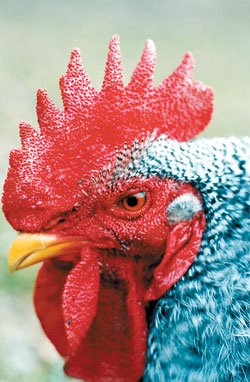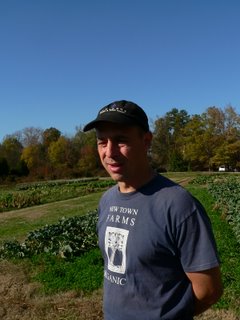
Hello everybody
I've mentioned in earlier posts that Sara Kate and I are working on a book about green consumer choices. Like Veggie Revolution, this book will be full of short interviews and "student voice" sections. These will be brief quotes from anybody and everybody of all ages about the subjects in the book. Right now, we're looking for comments on topics related to green choices in transportation and housing.
For example, here are two that we have on the subject of living without a car, for the new book:
"I don't have a car because I don't have my license. It's just never been convenient to get it. Ideally, I'd like to live somewhere with good public transportation, and never need a car. I guess I should get my license, so I could help drive on road trips, or drive friends' cars occasionally, but I don't really want a car of my own. Even if I could afford it, I don't want the responsibility. Or the guilt!
"Not having a car isn't too difficult. In
- Emily, age 23
"I just bought a used Honda. Originally I'd hoped to get a diesel vehicle, and either make my own biodiesel or convert it to run on greasel. But I couldn't find a reliable diesel car anywhere! They all had something weird about them, and I needed a car right away, so I could get to work. Maybe I can still do biodiesel later in life, but for now it just wasn't practical. I wouldn't want to pay to get a crappy car converted and then have to get it replaced anyway.
"It was pretty easy for me to learn about the options, at least. I know all about how to make biodiesel now, and if I wanted to have a biodiesel or greasel car, I'm sure I could do it. Obviously it would be a lot easier if we had more resources, if there were more people doing it... but what's going to make these alternative options take precedence over gasoline is those people who get out there first and do it on their own. For those first people it's hard, and there's not much support or information or resources, but it sets a precedent. It gets people talking. It shows that people are paying attention, and that we care about this stuff. We are so dependent on gasoline and finite resources... the end seems like a long way off, but it's not. So yeah, it takes some research, but look how much I know now!
"I also want to get a bike, for going short distances. Although this just isn't a biker's world, unfortunately. It's dangerous! I thought about riding Emily's bike to work when I worked just down the street, but Battleground Avneue? It's a three-lane channel of death. I'd be taking my life in my hands daily. Even with protective gear on, I wouldn't feel safe."
- Ashley, age 22
If anybody would like to send us a paragraph or two or three on any of the following topics, we would love to have them. The working title of the book is The Power of Your Pocketbook: How Americans' Consumer Choices Shape the Future of the Planet. The deadline is June, the book will be out from Fulcrum in spring of 07. If you would like to contribute, we can use your first name, first and last name, or it can be anonymous. It's up to you.
Here are the subjects we need comments on:
Have you lived or traveled in another country that is less reliant on cars? What is/was that like?
Do you have any personal experience with alternatives to gasoline-powered cars (hybrids, cars using biodiesel, straight vegetable oil, etc.)? What was that like? Good and bad
Have you lived in any of these situations? Please describe impressions:
passive solar house
off the grid
strawbale house
rammed earth house
recycled house (an older house relocated to a new lot)
a home that shared walls and green space with neighbors (the greenest use of space - combats urban sprawl)
Is either local or organic food a priority for you? Which is more important to you and why?
Have you lived or traveled anywhere where you saw specific results of globalization, or saw impoverished women working for pennies a day in sweatshops, or other examples of American corporations exploiting workers in developing nations? any anecdote or image appreciated, or a tirade. Either one.
Or if you would like to comment on something I didn't specifically ask, but is related, feel free. The gist of what we're getting at, in the sections on transportation and housing, is how Americans use more than our share of resources and energy by relying heavily on gas-guzzling cars, and and by heating and cooling our buildings inefficiently. Among other things.
If you want to write something, you can send it to me directly at treeduck@earthlink.net. I'll need a way to contact you in case we have a question.
Sally














